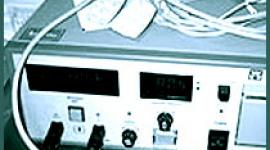Bipolar Disorder: Two-Sided Trouble
The public's understanding of bipolar disorder is often flawed, especially when it hits celebrities.
At first glance, legendary music producer Phil Spector and Oakland Raiders center Barret Robbins may seem to have little in common, but they both apparently struggle with bipolar disorder. Not that the condition has made the two celebrities behave in the same way.
Robbins had reportedly been hospitalized and placed on suicide watch shortly after he was suspended from playing this year's Super Bowl against the Tampa Bay Buccaneers. In the hours leading up to the big game in late January, there were accounts of the 29-year-old going on a drinking binge, missing crucial team meetings, and being disoriented and utterly depressed.
Spector, 62, supposedly resisted arrest in early February, minutes after police found the bloodied body of B-movie actress Lana Clarkson in the foyer of his Los Angeles mansion. The record producer, responsible for more than a dozen Top 40 Hits in the 1960's ("Be My Baby," "You've Lost That Lovin' Feelin'"), was accused of shooting Clarkson in the face and faces first-degree murder charges.
Although Spector has been notorious for his drunkenness and violent behavior over the decades, Rolling Stone reports that in the months before the murder, colleagues had found him sober, pleasant, and productive.
In the Raiders camp, some teammates publicly criticized Robbins for bailing out on the team in the Super Bowl, where Raiders lost to the Bucs 48-21. Despite the center's record of missed games and unexplained absences, guard Frank Middleton says he and many fellow players never knew Robbins as a depressed guy.
What happened to Robbins and Spector, and how did people working closely with them miss what was really going on? Psychiatric experts say a number of factors contribute to society's misconceptions about bipolar disorder and make treatment of it all the more difficult.
The Anatomy of Inner Turmoil
According to the American Psychiatric Association (APA), people with bipolar disorder, commonly known as manic depression, usually suffer extreme mood swings, cycling from mania to depression.
 In the manic phase, they usually feel invincible, euphoric, hyperactive, and very productive. This could lead to excessively risky behavior, grand delusions, uncontrollable thoughts and actions, irritability, rage, and insomnia. In the depressed phase, they can experience intense sadness, despair, fatigue, insomnia, difficulty concentrating, changes in appetite, and constant thoughts of suicide.
In the manic phase, they usually feel invincible, euphoric, hyperactive, and very productive. This could lead to excessively risky behavior, grand delusions, uncontrollable thoughts and actions, irritability, rage, and insomnia. In the depressed phase, they can experience intense sadness, despair, fatigue, insomnia, difficulty concentrating, changes in appetite, and constant thoughts of suicide.
Robbins once described his problem as 'a battle within your head.' Spector explained his as 'devils inside that fight me.' These are two examples of the emotional challenges affecting the lives of millions of people. The Depression and Bipolar Support Alliance (DBSA) reports that 2.5 million adult Americans suffer from the chronic disease; other countries reportedly have similar rates.
The good news is that effective treatments exist for manic depression, including medication, counseling, and sometimes a mix of both. The bad news is that many people don't take this life-altering remedy because they are either in denial about their illness, think nothing can help them, or they're misdiagnosed -- usually with depression. It is also common for those who are on drugs to relapse because they stop taking their prescription, often because they think they're getting better.
The stigma attached to psychiatric illness doesn't help either. Many people think only violent and insane-acting individuals could possibly have a mental disorder. Though it is true that mania could cause someone to become more aggressive and do illegal things, most of the time, people with serious psychiatric problems end up to be victims of crime.
"They are not as good at defending themselves because they tend to be loners, and vulnerable," says Robert Hirschfeld, MD, chairman of the department of psychiatry and behavioral sciences at the University of Texas Medical Branch in Galveston. He says many tend not to know what manic depressives go through unless they experience the disorder themselves, or know someone close to them who is suffering.
Otherwise, most people think sufferers can 'pull it together,' when that's not usually the case, says David Dunner, MD, director of the Center for Anxiety and Depression at the University of Washington in Seattle. He explains that mental illness isn't usually viewed in the same vein as the flu, pneumonia, heart disease, or broken bones. Yet, he says, "The same kinds of physical things are wrong when someone has depression or a manic episode."
Medical experts aren't yet certain of the exact cause of bipolar disorder, but a biological cause is the prime suspect since it seems to run in families. APA figures indicate that 80% to 90% of individuals with manic depression have a relative with either depression or bipolar disorder, a rate 10 to 20 times higher than in the general population.
A person's environment can also contribute to the disease, says Hirschfeld, pointing to both early and current experiences as possible factors.
Silent Suffering, Public Misunderstanding
Spector and Robbins' woes with manic depression may both have played out on the national stage, but based on reactions of shock to their plight, it seems their recent emotional anguish went relatively unnoticed or were ignored until it was too late.
The same thing can happen to ordinary citizens, testifies Dan Gunter, who has endured bipolar disorder for nearly a decade. The Opelika, Ala., resident says before he was accurately diagnosed with the illness, he cycled from mania to depression to the point that he hurt many people close to him and quit a good-paying healthcare job.
When he first sought help, doctors thought he had depression and prescribed him antidepressants. The drugs, he said, made his manic episodes worse.
Once the bipolar disorder was correctly identified and he was able to take the right medication, however, Gunter says his life improved dramatically. Now he not only works as an announcer for a group of radio stations, he has started his own coaching business -- helping other people with manic depression.
Although he considers the damage to his marriage irreparable, Gunter says his new life under treatment has helped him cope with many emotional difficulties. He considers himself fortunate that many of his family and friends have been understanding about his disease.
Gunter worries about the people who do not receive appropriate treatment, pointing to DBSA figures that say roughly seven in 10 consumers are misdiagnosed by doctors at least once. Also, more than a third (35%) of the misdiagnosed suffer for more than 10 years before they are accurately diagnosed with bipolar disorder.
The problem, Gunter says, is that most people will only report some symptoms, and many physicians don't take the time to do a comprehensive evaluation. "So bipolar disorder is very often misdiagnosed as depression, as schizophrenia, and other disorders," he says.
next: The Medication Journey: Bipolar Medication Adherence
~ bipolar disorder library
~ all bipolar disorder articles
APA Reference
Staff, H.
(2003, March 3). Bipolar Disorder: Two-Sided Trouble, HealthyPlace. Retrieved
on 2026, January 19 from https://www.healthyplace.com/bipolar-disorder/articles/bipolar-disorder-two-sided-trouble



